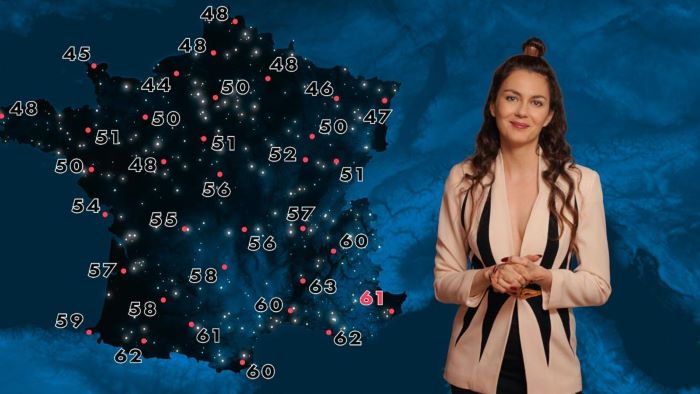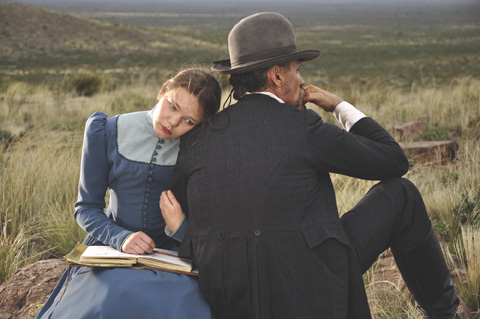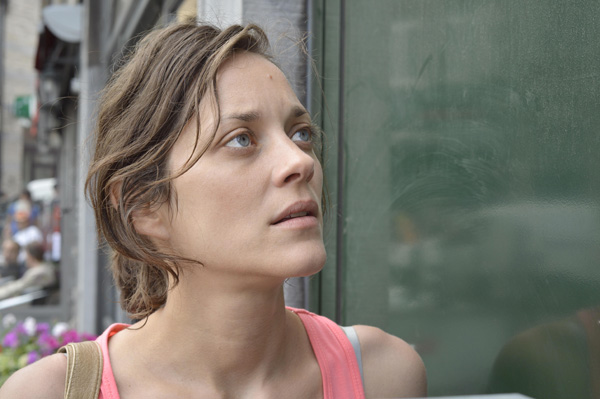Some of our greatest and most respected filmmakers working today are willingly trapped in the past, with visions and ideas that seem to directly avoid the chaos of the present or the uncertainties of the future. So how can we not admire the audacity of Bertrand Bonello, who actively addresses the times we live in to diagnose the possible future that awaits us?
Two of his latest films, Nocturama (2016) and The Beast (2023), were directly concerned with the future. Both sought to understand contemporary fears, monsters, and obsessions without giving us reliable answers, leaving us with extremely poignant questions instead. As a bridge that complements the experience of both of these exceptional works, there is Coma (2022, but released in the U.S. this month): a spiritual examination of life circa 2020 that is sometimes absurd, often chilling, and almost resembling a testimony from the end of times.
It would be unfair to measure Coma against The Beast, one of the best films released in theaters this year. However, in some way, it becomes a companion piece, a sort of visual draft filled with brilliant digressions, intentionally incomplete and frustrating, which in turn could be considered a sample of what the cinema of tomorrow could offer if filmmakers want to break from the lethargy of the past.
An entry in the recent subgenre of “pandemic cinema” (influenced in content and filmed with limitations because of Covid and the respective quarantines), Coma unfolds like a nightmare, featuring a teenager confined to her bedroom. Yet the French director would never let a simple premise become suffocated by the tedium of predictability, so four walls are not enough to contain the darkest aspect of the girl’s dreams or her avid imagination.
Introduced with abstract images and a voice-over revealing that this film is a love letter from the director to his teenage daughter, Coma can be alternatively appreciated as a hyper-realistic documentation that reimagines 2020 as the apocalypse that it almost was, or as a testimony of the not-too-distant future. The unnamed protagonist, played by Louise Labeque, is affected by an inner turmoil (that “quiet desperation” Thoreau wrote about), seeking relief in YouTube videos, FaceTime calls with friends who seem happier and more carefree despite the situation, and games that still bear the traces of her childhood. There are no parents in sight, nor obvious deprivations, just pure and absolute loneliness.
Her sole company to break the excess of introspection is Patricia Coma (Julia Faure), a vlogger and influencer whose videos aim at providing tools for “living well” are daily consumed by the protagonist. There are also the girl’s dolls that are suspiciously similar looking to Barbie and Ken (Despite copyright reasons, can we identify them as such?), whom she imagines immersed in an often hilarious soap opera, with infidelities and occasionally some explicit sex. In some scenes, the static dolls argue (voiced by Gaspard Ulliel, Louis Garrel, and Letitia Casta). Other times, there is stop-motion animation. In one conversation, Ken, er, Scott, responds only with dialogue based on tweets by Donald Trump. Meanwhile, the constant alternation with what the quarantined girl consumes through her screens provides enough dynamism.
Bonello unleashes his most disruptive vein by playing with form in such a way that you never know what he’s going to come up with. The film also ventures into the teenager’s dreams. Every time she sleeps, she is lost in a dark and sinister forest where screams are heard, and occasionally a familiar face approaches her saying cryptic phrases while describing the forest as a state of limbo. Both in the real world and in the dream realm, there is a recurring object, a device called the revelator, in which you have to replicate light patterns by touching the corresponding colors. It’s a game promoted by Patricia Coma, who warns that it’s impossible to lose even when you try. Since only in dreams can the player lose, the game feeds a metaphysical anxiety in the protagonist, who takes the influencer’s words about the non-existence of free will as a fatal prophecy.
Coma is not exactly a horror movie, but in a way, it is a visual experience plagued with anguish. During a Zoom call, the protagonist and her friends rank famous serial killers, until one of them has her connection cut off when a figure attacks her from behind. Bonello carefully observes how being surrounded by screens, and in turn, being constantly surveilled by them voluntarily, has accustomed us to lower our guard, to not be alert to the dangers and mysteries that the surrounding world still hides. Some of these threats are violent and real and should not be taken lightly, but there are others much more secret and personal, those concerning what we dream and imagine.
This is perhaps the most disturbing aspect of Coma. It’s almost like a film that we could remember better as something we have dreamed of instead of having seen. It even partly suggests that we are better prepared to face a grandiose apocalypse than to find ourselves alone and isolated with our unconscious.

















Leave A Comment